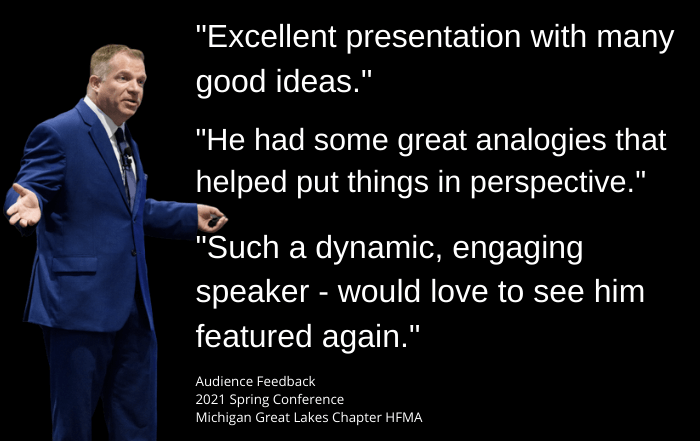 Successful leaders understand that even during challenging times, you must raise your standards. In today’s world, it’s easy to come up with excuses for mediocrity. It could be the pandemic, turnover issues, or hiring struggles.
Successful leaders understand that even during challenging times, you must raise your standards. In today’s world, it’s easy to come up with excuses for mediocrity. It could be the pandemic, turnover issues, or hiring struggles.
Unfortunately, some of the challenges won’t go away anytime soon. A new study from Greenhouse found that 75% say they anticipate hiring becoming more difficult in the year ahead.
While you can’t control the labor market, you can control the culture within your organization. During the past couple of years, has it slipped? This can happen when employees surrender a competitive edge, stop innovating, or have no buy-in with the big picture.
The change won’t happen overnight. It’s like a single weed spreading in a field. Those inside the business will probably be the last to notice the downturn, as they are close to the problem.
Is your department, division, or business falling into mediocrity and seeing performance sink to new lows? Consider if you’re familiar with these scenarios:
Excuses Don’t Let You Raise Your Standards
How do people approach a problem or a disappointing outcome? Are they frustrated by the situation and unsure what to do to make sure it never happens again? Or are they pulling out an excuse, the moment something goes wrong.
In any business, there will be disappointments. When I worked in TV news, you could be challenged by broken equipment, time limitations, and frustrating interviews. But you still had to do your job to the best of your ability.
When something goes wrong, do people immediately break out a bowl full of excuses? That’s the express lane to average. Average businesses are full of people who have mastered defecting blame or responsibility.
If you hear yourself or others making excuses, it’s important to evaluate the excuses to see if they have merit or are just a convenient way to explain away a poor performance.
For instance, bad weather can hurt sales. But the concept of bad weather is not new. What’s being done to prepare for it and lessen its impact on the bottom line? That kind of thinking can produce a competitive advantage.
No Initiative
How quickly are people letting go of things that aren’t working and replacing them with new ideas? You may want to outlaw the phrase, “That’s the way we’re always done it,” as it’s an easy excuse for mediocrity.
As a leader, does your team know you want them to investigate new ideas? You may have led them down a road to passive behavior, if you don’t set expectations for change. And you must give people time to find the next big thing.
And are you recognizing and rewarding better ways to do things? Become innovative in your recognition of innovation.
No Big Goal or Communicated Vision
Too many businesses keep their goals a secret. While certain details may need to stay confidential, is there a big picture you can share?
This could be as simple as saying, “We believe with several strategies we can significantly grow our marketshare in the next five years. Stay tuned for more.” You’re not giving away the secret sauce. You’re sharing an exciting vision.
Do you think people want to work for a business that has a focus or one that appears directionless?
Know the Tough Truth
An organization that has fallen into average or below average is more likely to slip further down. Excellence does not happen overnight. And the longer an average becomes acceptable mindset is part of your company culture, the more time it will take for a turnaround.
Raise your standards or you may find they are lower than you thought.






